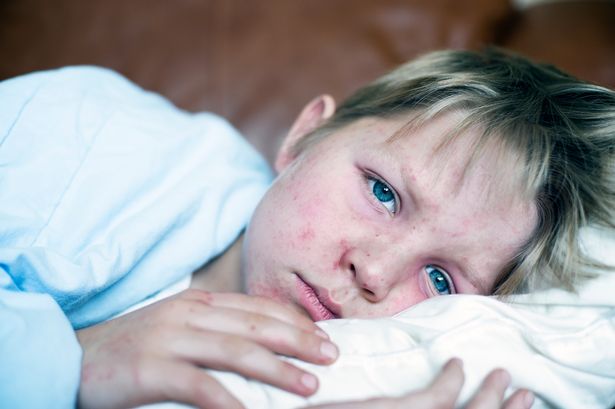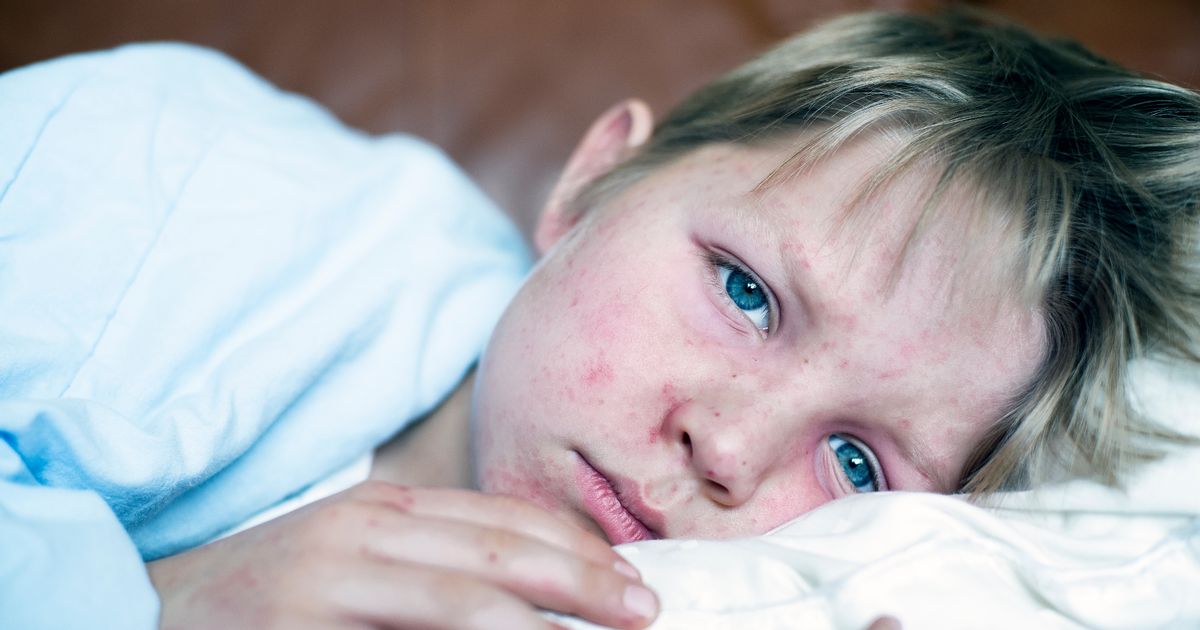The illness ‘can be a very serious illness that can lead to hospitalisation, permanent disability, and occasionally even result in death’ Measles is a very infectious virus and spreads very easily(Image: Getty Images)
Measles is a very infectious virus and spreads very easily(Image: Getty Images)
People in one part of Greater Manchester are being told to check they have been vaccinated as the number of people with a serious illness is rising.
People in Salford are being encouraged to check that they, their children and teenagers have had two doses of MMR vaccine.
It comes after confirmation that measles is circulating in the area, says Salford City Council.
Councillor John Merry, Deputy City Mayor and Lead Member for Adult Services, Health, and Wellbeing, said: “Measles is a very infectious virus and spreads very easily.
“People who catch measles usually recover completely within a couple of weeks; however, measles can be a very serious illness that can lead to hospitalisation, permanent disability, and occasionally even result in death.
“The MMR jab offers the best protection against measles and importantly vaccination is also about not spreading the disease to others who may be more vulnerable.
“Don’t put it off, please act today so we can ensure that all children are given the best protection. The best way to protect yourself, your family and friends, is the MMR vaccination.
“It is important for anyone who has not already had two doses of the MMR vaccine to contact their GP surgery for an appointment to get vaccinated.
“Two doses of the MMR vaccine are needed for full protection against measles, preferably by the age of 5 years. MMR is a highly effective and safe vaccine.”
Complications of the measles
Measles can lead to serious problems if it spreads to other parts of the body, such as the lungs or brain, says the NHS
Problems that can be caused by measles include:
- pneumonia
- meningitis
- blindness
- seizures (fits)
These problems are rare, but some people are more at risk. This includes babies and people with weakened immune systems.
If you get measles when you’re pregnant, it could harm your baby, the health service says.
It can cause:
- miscarriage or stillbirth
- premature birth (before the 37th week of pregnancy)
- your baby having a low birthweight
It’s important to get medical advice if you’re pregnant and have been in close contact with someone who has measles, says the NHS.
The signs and symptoms
The initial symptoms of measles develop around 10 days after a person is infected but can take between seven to 21 days and you are infectious to others four days before the rash appears.
Symptoms can include:
- cold-like symptoms, such as a runny nose, sneezing, and a cough
- sore, red eyes that may be sensitive to light
- a high temperature (fever), which may reach around 40C (104F)
A few days later, a red-brown blotchy rash will appear. This usually starts on the head or upper neck, before spreading outwards to the rest of the body.
Symptoms usually resolve in about seven to 10 days.
Councillor Arnold Saunders, Vice Chair of the Community and Neighbourhoods Scrutiny Panel, also shared: “If you are not sure if you or your child have received two doses of the MMR vaccine (at 12 months and three years and four months), you can contact your GP practice to check your records and get vaccinated.
“We are advising parents are alert to the signs and symptoms of measles, which can include cold-like symptoms, sore red eyes, a high temperature and a red-brown blotchy rash.
“If you experience these symptoms seek medical attention but be sure to phone ahead before you visit your GP surgery or other healthcare setting, so arrangements can be made to prevent others from being infected.”
For further information about measles, please visit the NHS website. Information about the MMR vaccine can also be found on the NHS website.
